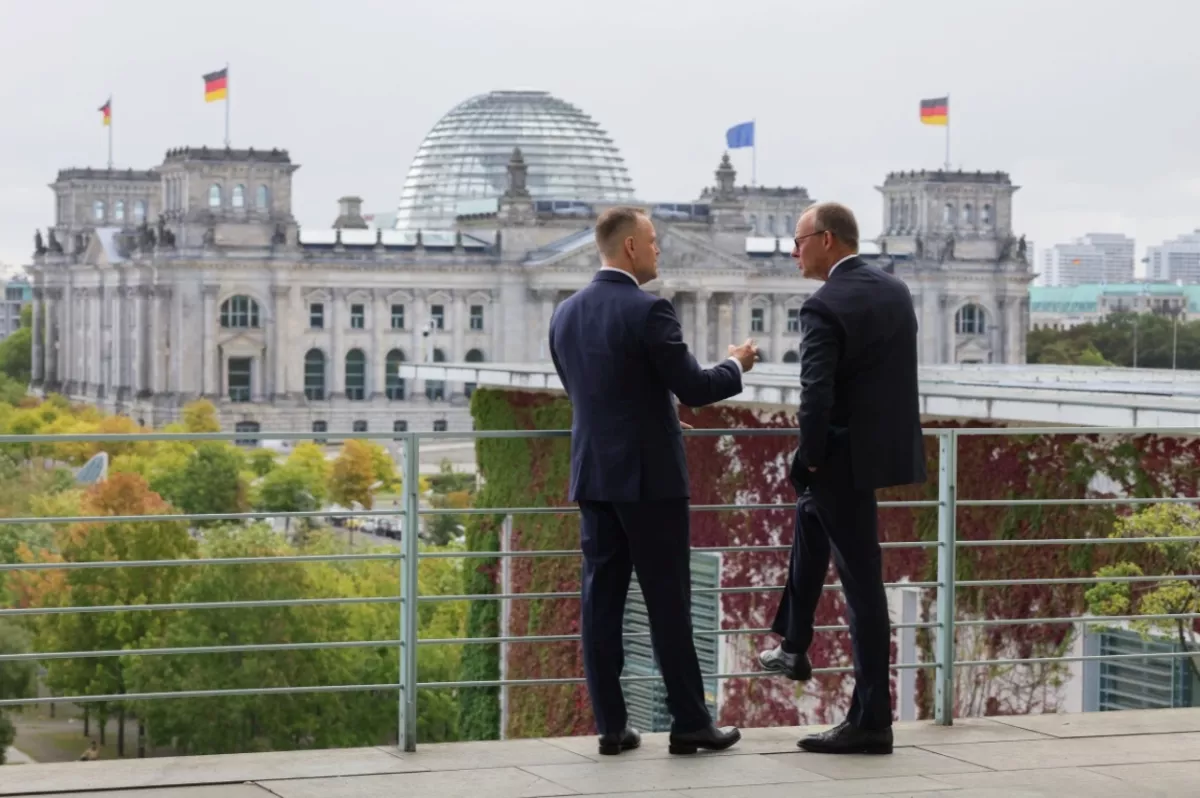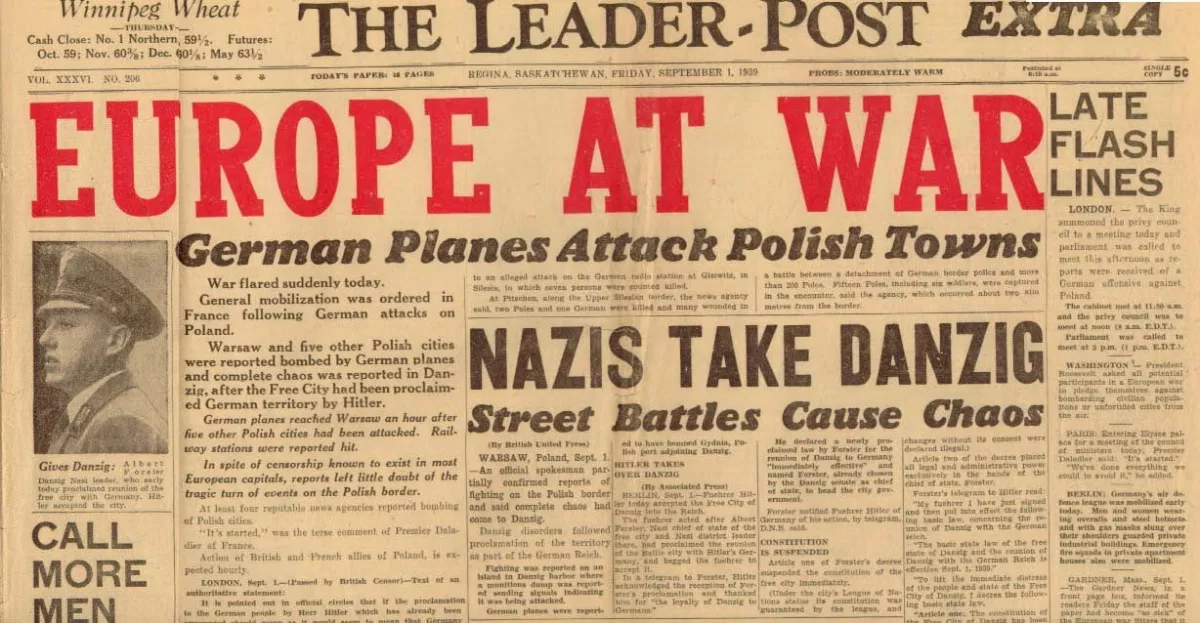Poland – Germany: Reparations inside Pandora’s box Populism, pressure, or strategy?
After Russian drones penetrated Polish airspace, the “target” of Polish politicians paradoxically became Germany. Speaking at a ceremony marking another anniversary of the start of World War II, Polish President Karol Nawrocki declared that Germany must pay his country reparations for the damage inflicted on the Polish state between 1939 and 1945.
“In order to build relations with our western neighbour on the foundation of truth and good neighbourliness, we must finally resolve the issue of reparations, which I, as President of the Republic of Poland, demand unconditionally for the sake of our common good,” the Polish leader stressed.
The issue of compensation for the damage inflicted by the Nazis arose in Poland long before today. It began to be discussed almost immediately after 1945. However, in 1953 Warsaw officially renounced demands for war reparations from its then ally, the German Democratic Republic (GDR). Poland’s renunciation of reparations was also recorded in the 1990 Treaty on the Final Settlement with Respect to Germany, signed by the foreign ministers of the United States, USSR, United Kingdom, France, the GDR, and the Federal Republic of Germany (FRG). In 2017, the Polish Law and Justice Party (PiS) once again raised the issue of compensation from a unified Germany. Upon coming to power, PiS created a parliamentary commission which, in September 2022, estimated Poland’s wartime losses at €1.3 trillion.
It was entirely predictable that the German leadership, preoccupied with shifting its economy onto a war footing and lacking an extra trillion euros, reacted rather coolly to the Polish president’s statement. During Nawrocki’s visit to Berlin on September 16, German President Frank-Walter Steinmeier told him that Warsaw’s demands for World War II reparations had no legal basis.
Following the meeting, Steinmeier’s press secretary Cerstin Gammelin wrote on social media that the two presidents had discussed international issues, bilateral relations, and Poland’s demands for reparations over World War II.
“As for the Polish president’s demand for reparations, President Steinmeier stressed that, from Germany’s point of view, this matter has been legally and definitively settled,” she emphasised.

Notably, the payment of reparations is not particularly common in global practice. In the 20th century, they replaced indemnities and were imposed on countries that suffered defeat in wars. For the first time, Germany, defeated in World War I, was obliged to pay reparations to the victors. Berlin was required to transfer to the Entente powers the colossal sum of 269 billion gold marks (equivalent to $3–4 trillion in today’s money). The burden of reparations led to the collapse of Germany’s financial system in the 1920s. Once in power, the Nazis refused to make any payments demanded by other countries.
However, after World War II, the debts still had to be repaid. Under the London Debt Agreement of 1953, Germany was required to resume payments once the FRG and GDR were unified. When this occurred, the country took out a loan of 239.4 million marks and settled its World War I debts in 2010—92 years after the Treaty of Versailles.
At the end of World War II, reparations were imposed on the defeated Axis powers—Germany, Japan (which had to give up its overseas assets worth $23.6 billion), Italy, Hungary, Romania, Bulgaria, and Finland. A portion of the payments received by the USSR from Germany was transferred to Poland, which today considers this sum insufficient.
After the Gulf War (1990–1991), the UN Security Council ordered Iraq to pay reparations to Kuwait, which had suffered from Iraqi aggression. A special UN commission set the amount at $52.4 billion, which was not fully paid until 2021. To cover reparations, Iraq allocated 5% of its oil and gas export revenues.
As we can see, actual reparations payments have always been linked to the defeat of one side in a war and subsequent military occupation. In contemporary global politics, however, it has become common for states to make mutual claims for past grievances, often amounting to astronomical sums. For example, Latvia has officially demanded $300 billion from Russia for the incorporation of the country into the USSR in 1940.
In 1991, the Organisation of African Unity decided to establish a Reparations Committee, which by 1999 calculated that European countries and the United States had caused damage to the African continent worth $777 trillion during the years of colonial rule. Croatia has lodged claims against Serbia for damages suffered during the Balkan wars of the 1990s, but Belgrade responded that it was prepared to file a counterclaim against Zagreb over the harm inflicted on Serbs by the Ustaše regime during World War II.
Such demands usually serve either as a tool of pressure in foreign policy and an indicator of deteriorating relations between states, or are purely populist in nature, aimed at voters with the message: “In the foreseeable future, our country will receive billions of dollars, which will solve all our problems.”

What, then, is the real meaning of Karol Nawrocki’s latest démarche, beyond the desire to show his electorate that he is ready to firmly defend the country’s interests?
First of all, it should be noted that Poland’s recent “economic miracle” has been tied to large-scale investments from the EU budget. Today, the economy of a united Europe is going through difficult times, and Brussels is inclined to “punish” Warsaw for a number of decisions it deems unacceptable, such as the ruling on the primacy of Polish law over European law, judicial reforms, the anti-abortion law, and so on. At the same time, Germany is the main donor to the European treasury, while Poland is its largest beneficiary. By raising the issue of reparations, Warsaw is simultaneously signalling to both Brussels and Berlin that if investments in Poland are not forthcoming through the European coffers, the country may seek to obtain funds by other means.
Another important factor shaping the Polish president’s actions is Warsaw’s close relationship with Washington. It is no coincidence that many European politicians view Poland as Donald Trump’s “Trojan horse” in Europe. By pressing claims against Berlin, Nawrocki undermines European unity—something that, objectively, plays into American interests.
Finally, after the incident with Russian drones in Polish airspace, it has become crucial for Warsaw to secure as much funding as possible from the enormous European defence budget in order to strengthen its position as a “frontline state.” In this context, the reparations issue serves as a disguised request for additional defence allocations.
Despite the emotional statements by politicians and heated debates on social media, the question of reparations is unlikely to have a significant impact on future Polish-German relations. Rather, it will be viewed by both sides as part of a diplomatic game. As experts point out, if any country were to agree to pay reparations decades after the end of a war, it would open a Pandora’s box capable of plunging the world into chaos.








